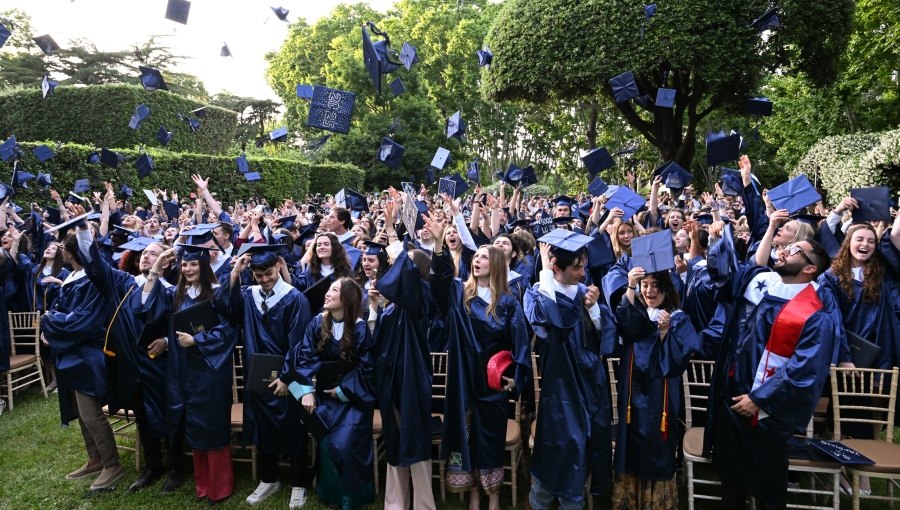Call for Papers - International Conference "Rethinking Political Catholicism"
Although the study of religion and politics has blossomed over the past decade, the normative debates over the appropriate place of religion in modern democracies often remain divorced from the study of the actual practices and meanings of religion in these democracies. Consequently, many new normative concepts and arguments have not filtered down to the empirical study of religion, while normative debates are often inadequately informed by the empirical realities of contemporary religious practices and beliefs.
Rethinking Political Catholicism aims to bridge this divide by focusing on the fertile case of political Catholicism in Italy. Empirically, the conference aims to take stock of political Catholicism in Italy today, compare it with Catholic and Muslim politics elsewhere, and use contemporary theoretical and normative insights to better understand its post-secular dynamics. Normatively, the conference aims to evaluate the practices of contemporary political Catholicism in Italy and elsewhere, and thus contribute to developing a more sophisticated debate about the proper roles of religious politics in contemporary democracies.
Empirical Research Agenda
Much of the empirical study of political Catholicism in Italy has remained mired in debates over whether the data indicates that Italy is still a ‘Catholic’ society, in which Catholic beliefs and votes rule. The framework of this debate is dominated by the classic secularization paradigm, according to which Italy is viewed either as a secularized (or secularizing) country or as a religious exception to the rule. This dichotomy has eclipsed a reading of Italian life and Italian political Catholicism in the terms of post-secular theory, which suggests that the Italian religious trajectory need be neither secularizing nor abnormally religious, but rather developing a deeper level of public religious complexity in an advanced democratic setting. In this respect, many Italian Catholic political elites appear to act in post-secular ways, especially since the collapse of Democrazia Cristiana: they endorse a liberal, secular, plural political framework, yet insist on a public presence which draws on a loose, but nationally shared public religious identity. The dichotomous secularization paradigm has also obscured the fruitful comparison with the rich new corpus of theory on political Islam and its own project of constructing an alternative democratic and religious modernity.
To better construct and further this discussion with post-secular theory, the empirical papers of the conference are invited to analyse the project and impact of political Catholicism in Italy and elsewhere today. Suggested themes include the following.
- Catholic political elites’ new forms of engagement in politics and the public sphere (for instance, the Todi initiative, the Monti-ACLI-Sant’Egidio alliance, CEI positions, Comunione e Liberazione coalitions);
- Continuities and discontinuities between these initiatives and twentieth-century Catholic associational life (Catholic Action, Christian Democratic parties, Catholic worker unions, and so on);
- Patterns of contemporary Catholic religious belief, and its influence on Italian electoral preferences and new Catholic movements and associations;
- The degree to which such factors indicate the emergence of a distinct, post-secular Catholic political modernity in which the Catholic Church acts as a public religion;
- Comparisons between this project and new trends in religious politics elsewhere, particularly in the Middle East/North Africa and North America.
Normative Research Agenda
In contrast, normative debates have advanced in an awareness of post-secular conditions, offering various conceptions of how and how far religion should participate in liberal democratic politics. These debates could be enriched by a more empirically grounded understanding of religious political belief and action, as well as a greater engagement with opposing religious views of politics, and the rich alternative resources for criticizing, reforming and upholding liberal democracy that these views provide.
The theory and practice of political Catholicism in Italy and other liberal democracies offer rich opportunities for developing such a more concrete and nuanced normative treatment. In Italy, the distinctive understanding and practice of church-state relations, the continued activism of Catholic elites twenty years after the demise of Democrazia Cristiana, and citizens’ persistent and complex religiosity challenge the normative terms and frameworks developed in and for North America and Western Europe. In Italy and other liberal democracies, Catholicism’s engagements with specific political issues – from economic justice, education, and bioethics, to the environment, war, and humanitarianism – also present significant cases for evaluating its political practices. And such broader Catholic notions as the common good, solidarity, freedom, personhood, human nature, and reason provide substantial resources for challenging and/or consolidating liberal democratic conceptions of politics, rights, justification, and modernity – and, indeed, require normative clarification and analysis of their own. In all these respects, the comparison with theories and practices of political Islam in liberal democracies also promises to be illuminating.
Normative contributions to the conference are therefore invited to consider such themes as the following:
- Current Catholic political groups, claims, or activism, in Italy or elsewhere;
- The normative meaning and grounds of ‘political Catholicism’;
- Catholic analyses of contemporary political issues;
- New challenges posed by Catholic political thought and practice to liberal democratic theory;
- The significant of the church-state relationship in Italy for theories of post-secularism;
- Comparisons with recent trends in Islamic political thought and practice.
The working language of the conference will be English, and a collection of papers based on the conference will also be published.
The conference is part of the John Cabot University Summer Institute for Religion and Global Politics (May 19-June 20, 2014).
Confirmed speakers:
Paola Bernardini (Contending Modernities Project)
Luca Diotallevi (Roma Tre)
Agostino Giovagnoli (Cattolica, Milan)
Paul Weithman (Notre Dame)
Ateş Altınordu (Sabanci University)
Submission guidelines
A 500-word abstract, of a paper suitable for presentation in 20 minutes, should be sent by , to the organizers, Tom Bailey and Michael Driessen. Notice of acceptance will be provided by March 22.
Selected papers will be considered for publication in a collected volume.
Registration fee (includes lunches and refreshments): Faculty € 50, Students € 25
The conference is funded by John Cabot University.





